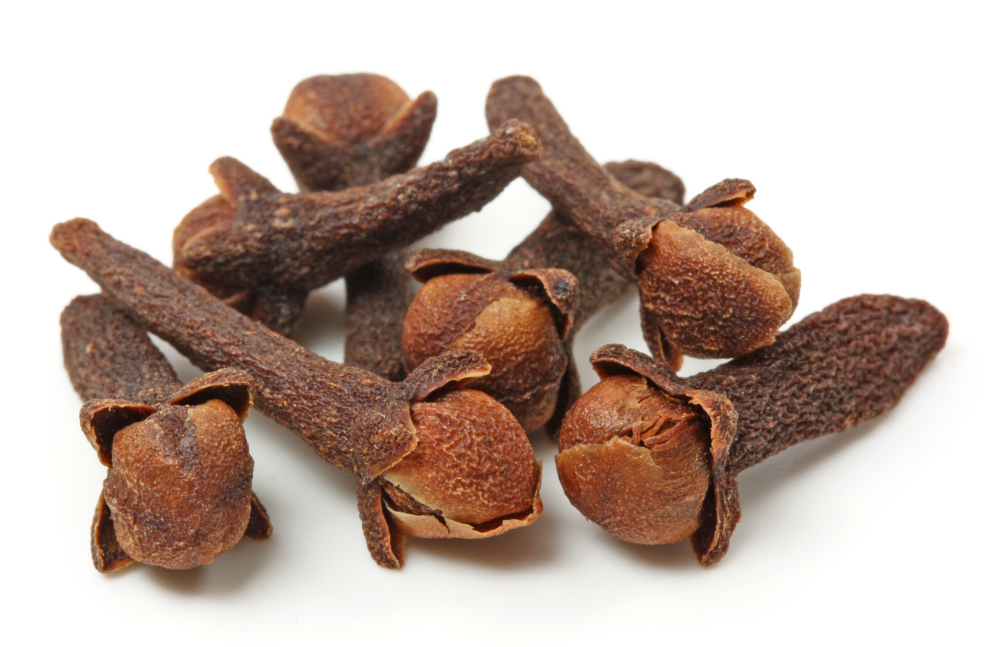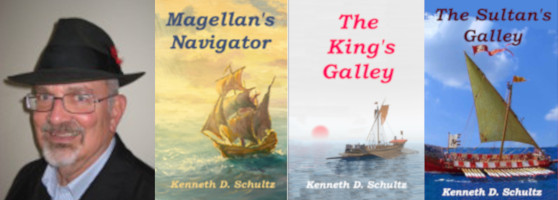
The Trinidad and Victoria, the sole surviving ships of Magellan’s Armada of the Moluccas, dropped anchor off the Spice Island of Tidore the afternoon of Friday, November 8, 1521. This finally accomplished what Magellan had first dreamed of doing years before. They announced their arrival with their cannon, and the next day they were greeted by Rajah Almanzor. The Spice Islands of Ternate and Tidore, along with a few other nearby islands, were the sole source in the world of cloves. A shipload of this now common spice would be worth a fortune in Europe—enough to pay for the entire expedition.
The voyage from Cebu inexplicably took over six months, whereas Drake took only twelve days. Drake was an excellent navigator. Carvalho, chief pilot and commander until September 21st, was a thoroughly incompetent navigator. Francisco Albo later demonstrated his skill by piloting the Victoria from the Spice Islands back to Spain. Why didn’t he step forward and get the fleet back on track? I don’t know. Once Carvalho was deposed, it still took the ships forty-eight days to reach their objective.
The Spanish ships sailed into a thorny political situation. The rajahs of the neighboring islands of Ternate and Tidore were bitter rivals. The only thing that united them was their common hatred of the Portuguese.
Some years earlier Magellan’s friend Francisco Serrão was shipwrecked…but managed to become vizier for the rajah of Ternate. With a few fellow Portuguese and a cannon, Serrão helped Ternate vanquish Tidore, and thereby earn the hatred of Rajah Almanzor of Tidore. This established Ternate as the preeminent of the two Spice Islands. The Portuguese were uneasy with Serrão in Ternate and attempted to recall him. Serrão refused, although he did permit a Portuguese trading post in Ternate. Subsequently, at about the time of Magellan’s death at Mactan, Serrão was poisoned, probably by Almanzor, the person with the most to gain by his death.
Why did the Spanish choose to first land at Tidore, rather than at Ternate where they knew Magellan’s friend was vizier? One can only suppose that the local pilot that they had engaged knew that Serrão was dead, and that Ternate was loosely allied with the Portuguese while Tidore was opposed to the Portuguese and hence a potential ally for the Spanish. It proved to be a good choice. Almanzor signed an alliance with Spain, and helped the Spanish in whatever ways he could. Only later, when the Spanish learned of Almanzor’s poisoning of Serrão, did they become more cautious of the friendly rajah. Nonetheless, the Spanish stood by Almanzor, shunning the efforts of the Rajah of Ternate to get them to come to his island for the cloves.
The arrival in the Spice Islands brought up another issue. Did these islands lie in the Portuguese sphere of influence or the Spanish sphere? (The pope had previously divided the non-Catholic world between the Portuguese and Spanish, disregarding any rights of the existing inhabitants and the interests of any other kingdoms or republics.) The pope’s division basically gave Brazil and India to the Portuguese, with the remainder of the New World to the Spanish. He didn’t really address the far side of the world, but what happened if you extended the demarcation line from the Atlantic to the Pacific and called anything west of that line Portuguese and anything east Spanish? Serrão had written Magellan that based upon this the Spice Islands were in the Spanish sphere. Unfortunately, both he and Magellan underestimated the true circumference of the world, which put the islands in the Portuguese sphere. Albo’s estimation of the islands’ longitude confirmed this, although his logbook was stashed in the Seville archives and he never was invited, or attended, subsequent negotiations between Portugal and Spain about the Spice Islands. Of course, determining longitude at this time was not an easy task, and however Albo did it, he did well, as he was only three degrees off. Interestingly, Pigafetta in his book puts the longitude of the Spice Islands decisively, and inaccurately, in the Spanish sphere of influence. Where he got his longitude can only be conjectured. One can suspect it was politically calculated to meet the Spanish needs.
The Spanish interlude in the Spice Islands went well, although Espinosa, Cano, and Albo were eager to get their ships loaded and be off. They knew they had to sail before the monsoons hit, which would make sailing westward back to Spain impossible for months. Finally, on December 18th, 1520 with holds full of cloves the Trinidad and Victoria went to raise their anchors.
Then disaster struck.
